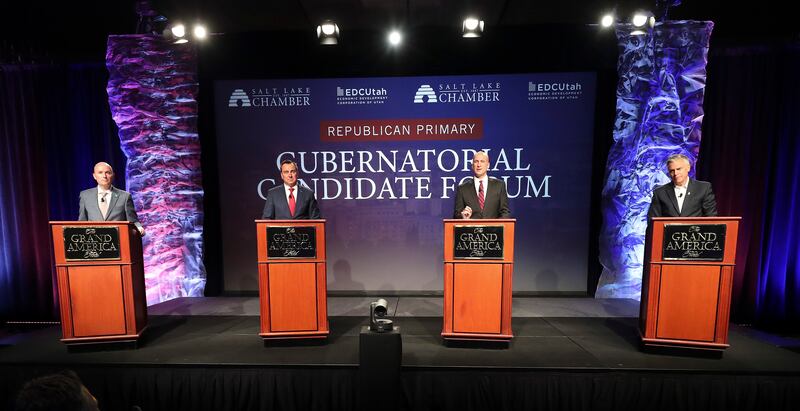I recently received a postcard from the Salt Lake County Clerk’s office telling me that I was about to be disenfranchised.
It just so happens that as a member of the United Utah Party, I was not eligible to participate in the upcoming primary elections in which candidates for governor are going to be chosen. The Salt Lake County clerk suggested I reconsider my party registration in order to vote. I can certainly understand the logic behind that suggestion, because, if history is any guide, the winner of the Republican gubernatorial primary is all but certain to go on to win the general election. But Republicans, unlike every other party in the state, have a closed primary which doesn’t allow people outside the party to participate.
That means that non-Republicans get no voice in who their next governor will be.
I’m familiar with all the arguments that Republicans pose in their arguments in defense of a closed primary. They’re much the same arguments that have cost the Utah GOP hundreds of thousands of dollars in their multiple failed lawsuits against SB54, the compromise legislation that allows candidates to bypass the exclusive convention process and gather signatures to get on a primary ballot. According to the Utah Republican Party, they’re a private organization with the constitutional right to determine who their own candidates are and who gets to vote for them. They’ve brought themselves to the edge of bankruptcy defending that argument on SB54, so it’s not at all surprising that they’re not willing to consider the possibility of opening their primary to allow anyone outside of the GOP faithful.
The problem with that argument is that my taxpayer dollars are subsidizing their so-called “private organization.” It is estimated that the upcoming June 30 primary will cost the state $3 million, which is a cost paid by all Utahns, not just the Republican ones. And while Republican dominance among elected officeholders may give the impression that every Utahn belongs to the GOP, the fact is that over half of Utah voters are not Republicans, but they’re still stuck with half the bill for the closed primary. And then they stand on the sidelines and watch as fewer than 50% of the people of Utah get to choose who gets to govern 100% of the state.
If you’re wondering why Utah voter participation rates have plummeted in recent years, this may be a key reason why.
The alternative for many is to temporarily change their voter registration to Republican in order to participate. Former Gov. Jon Huntsman has funded advertisements trying to convince non-Republican voters to do precisely that. Even Jim Dabakis, the former chairman of the Utah Democratic Party, is now a Republican in order to have a vote.
“I believe everybody in the state ought to get into this fixed, rigged election to make sure that the best person gets elected governor of Utah, not just be passive and sit there and see who this small, small slice of state voters decide should be the leader,” Dabakis said.
He has a point, certainly, but there’s a better option. Rather than make people join a party they don’t truly support, just undo the fix. De-rig the elections. Open up future Republican primaries so that everyone gets to participate.
If Republicans don’t want to do that, then they should take full financial responsibility for shutting out half of the future governor’s constituents. They should pay the full price for preventing people from voting. A check for $3 million dollars ought to cover it.
Jim Bennett is a founding partner in Canonizer.com and a co-founder of the United Utah Party.


